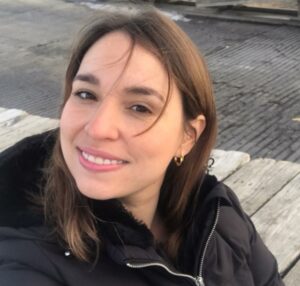Cinema and moving images are an integral part of daily life as they are widely used both by consumers (through television, the Internet, and other media) and by those who create their own home videos. This resource not only facilitates auditory and visual comprehension but also enriches the type of language used, incorporating situational, iconic, conversational, and gestural elements, among others.
The wide range of resources that a person learning a foreign language encounters when watching a sequence from an original film stimulates various cognitive, visual, auditory, and spatial aspects. These aspects align excellently with the complexity of different learning styles.
Watching movies in their original language brings several advantages. Firstly, it enhances your listening comprehension as it allows you to become familiar with various accents, speech rhythms, and intonations. Additionally, it enriches your vocabulary and exposes you to idiomatic expressions that are generally not found in textbooks. Furthermore, it serves as a fantastic means to immerse yourself in the culture and traditions of Spanish-speaking nations, providing you with a better understanding of the context in which the language operates. By doing so, you will be better prepared to communicate effectively in real-life situations.
In today’s article we recommend you 5 films in Spanish to improve your Spanish and socio-cultural competence. Did you know any of these films?
5 films in Spanish to improve your Spanish and socio-cultural competence
- Roma (Mexico, 2018) – Directed by Alfonso Cuarón, this film received three Academy Awards, including Best Director. The movie offers a touching portrayal of the life of a domestic worker in Mexico City in the 1970s.
- La Llorona (Guatemala, 2019) – Directed by Jayro Bustamante, this film addresses themes of justice and reconciliation in the context of the Guatemalan genocide. It was shortlisted for the Oscars.
- Los Colores de la Montaña (Colombia, 2010) – Directed by Carlos César Arbeláez, this film addresses themes of childhood, friendship, and war in the context of life in a rural area of Colombia. Some of the recognitions and awards: Audience Award at the Cartagena International Film Festival (FICCI) in 2011, Best Film Award at the Guadalajara Film Festival in 2011 and Best Film Award at the Malaga Film Festival in 2011.
- Coco (Disney-Pixar, 2017) – Directed by Lee Unkrich. It’s an animated film that stood out for its celebration of Mexican culture, the Day of the Dead, and its thrilling narrative. Some of the recognitions and awards: Academy Awards (Oscar) Coco won two Academy Awards at the 90th Academy Awards. It won in the categories of “Best Animated Feature” and “Best Original Song” for “Remember Me”. Grammy Awards: The soundtrack of “Coco” won the Grammy Award for “Best Compilation Soundtrack for Visual Media.”
- El Agente topo (Chile, 2020) – Directed by Maite Alberdi, this documentary film follows an 83-year-old man who infiltrates a nursing home to investigate possible abuses. It was nominated for the Academy Award for Best Documentary.

Tips to make the most of the experience of watching movies in their original version
- Spanish subtitles: This will help you connect what you hear with what you read, allowing you to understand the dialogue more clearly.
- Take your time: You have the option to pause the movie, repeat, and replay sections you haven’t fully understood.
- Variety: Explore films from different genres, nationalities, and time periods.
- Take notes: Write new words or expressions you acquire during the movie.
- Discuss: After finishing the movie, engage in a conversation about it with other Spanish learners or even native speakers.
In summary, watching Spanish-language films is an effective and engaging strategy to improve one’s Spanish language skills and socio-cultural competence. It helps solidify linguistic abilities and provides a deeper understanding of the culture and society of Spanish-speaking countries, offering a current perspective on cultural and social issues relevant in different Spanish-speaking nations. Moreover, many of them have been awarded or nominated in film festivals and significant award ceremonies.
If you are interested in films and learning Spanish, what if you take a look at this Spanish course on Español a través de cortometrajes available in the Entrelenguas Hub?

Paula Romero
Profesora de ELE en prácticas




